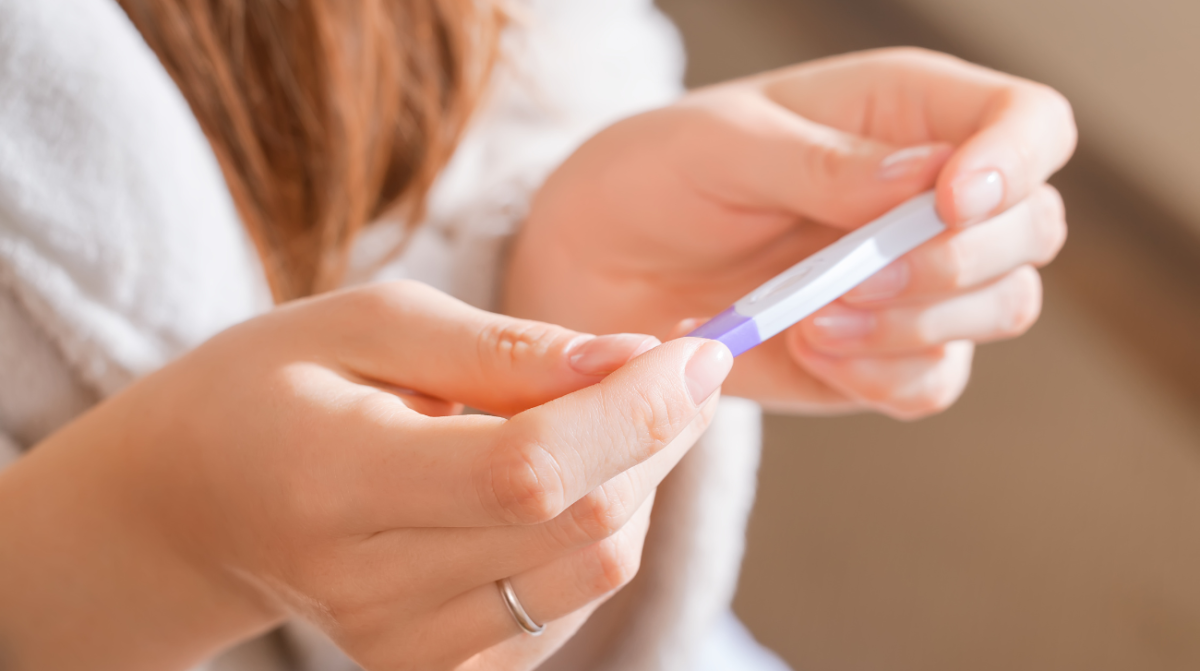When you’re trying to start or expand your family, it can be heart breaking to not conceive despite months of trying. While some couples go on to become pregnant, one in six couples worldwide experience infertility – they are unable to conceive after one year of regular, unprotected sex. This can take a huge toll on their mental health, physical health, relationships and more.
Infertility affects men and women equally. In couples experiencing fertility challenges, approximately 35% is due to male factors, 35% is due to female factors, 20% is due to male and female factors, and the last 10% is due unexplained fertility – doctors do not know why a couple cannot conceive.
Naturopathic physician and homeopath Dr Benita Perch is skilled at finding the overlooked causes of infertility in men and women. Over the past sixteen years, she’s found the origin of many couples’ pregnancy struggles, some of which include factors like stress, toxicity and age, but also often because the very basics that are critical for a couple to conceive had been ignored.
Back to basics: the essentials that cause pregnancy problems.
“It never ceases to bother me how often the basics are missed by medical doctors, fertility specialists and even practitioners within my profession.
The way I work is by thinking at three different levels: as a doctor, naturopathic doctor and homeopath. I want to find the missing pieces of the puzzle. What is going on inside these women’s bodies that so far has been overlooked?”
Thyroid level
I see so many women trying to conceive with undiagnosed early-stage hypothyroidism or Hashimoto thyroiditis, which hugely interferes with getting pregnant.
Nutrient levels
To get pregnant, a body needs the right tools. It needs to know it has enough iron, so we test ferritin levels to check iron storage. Sometimes doctors just look at haemoglobin levels, but this doesn’t give the full picture. Sometimes you may have the right haemoglobin levels, but have low iron storage, because you’re using it all up.
Vitamin Ds, Magnesium and Zinc. It should be common practice to test for these nutrient levels when a couple is trying to start a family, but it’s not. Doctors should also be looking at the nutrients essential for good egg and sperm quality including coenzyme Q10, DHEA melatonin, Vitamin E and inositol.
Instead, women are given a standard prenatal – a poor-quality once-a-day supplement that contains all the wrong forms of vitamins. This supplement usually contains folic acid, which around 40% of women can’t utilise properly because they have a methylation issue. Instead, a prenatal should at least contain methyl folate and methyl B12, which leads me on to methylation: another key reason for pregnancy issues.
Methylation
I see a lot of patients undergoing fertility treatment in the US, Australia, Spain, Thailand, Taiwan and more. As a basic, their doctors look at the MTHFR gene, which is responsible for instructing the body to utilise folate and convert it to its active form. But rarely have I heard of a fertility doctor in Hong Kong doing the same, even though around 40% of women and 90-95% of women with pregnancy issues have an MTFHR gene mutation (meaning they cannot use folate unless in its active form).
But, why is the MTHFR gene important? The end-product of the methylation cycle, which requires folate and methyl B12 in their active form, is SAM-e. SAM-e donates a methyl group to 200 enzymes in the body. One of the most important things this does is make or fix DNA. Once an embryo is implanted it demethylates and remethylates. But without SAM-E it can’t remethylate effectively, which signals to the body that there are errors and contributes to reproductive challenges and miscarriages.
Testing for barriers to reproductive health
From an integrative and naturopathic viewpoint, these are the key areas to test to identify barriers to reproductive health.
Epigenetics
For all my patients trying to conceive, I do epigenetic testing to analyse their genes. I use Grow Baby by DNA Analysis, which looks at every gene relevant to conception and pregnancy. It covers MTHFR, toxicity, progesterone levels, the risks of gestational diabetes and more.
Gut health
There’s been an explosion of research in recent years on the influence of microbiome (the trillions of bacteria, viruses, and fungi in the gut) on pregnancy. So, depending on my patient’s medical history, I analyse their gut health. In the naturopathic world, we look for dysbiosis, which is an imbalance of good and bad bacteria. We look to see if there’s overgrown yeast, parasites, and bad bacteria. Bad bacteria produce endotoxins and LPS which, when absorbed by the body, causes inflammation. A lot of Hong Kong residents also have an overgrowth of h. pylori in their gut, which causes inflammation too. As inflammation interferes with the ability to get pregnant, it’s important for women and men with diarrhoea, constipation, chronic gas or bloating to get their gut checked.
It’s not only your gut that has good and bad bacteria – your vaginal microbiome is also key. Our Invivo Female Ecologics test uses a swab to analyse your vaginal flora. A healthy vaginal microbiome supports implantation of an embryo. Conversely, bad bacteria can reduce your chances of implantation. Itching, irritation, soreness and unusual vaginal odour can indicate your balance of good to bad bacteria is off. Testing can confirm whether this is a barrier to pregnancy.
Diet
When trying to get pregnant, it’s important to clean up your diet. Start by taking out the big six: gluten, dairy, sugar, white (white bread, white rice, and pasta), alcohol, and fried foods (not healthy homecooked stir-fries, but foods heavily fried in unhealthy oils).
It’s also important to test for food intolerances, particularly if you’re experiencing joint pains, fatigue, brain fog, headaches, or lethargy. IGG or food intolerance testing is invaluable in infertility cases to identify causes of inflammation.
Stress
Particularly in financial cities like Hong Kong and even more so during the pandemic, stress has skyrocketed. For many, the body never comes out of sympathetic (fight or flight) mode and into parasympathetic (calm, rest and digest) mode, which makes it incredibly difficult to get pregnant.
This is why many women go on holiday and fall pregnant or try for years, choose to adopt and then – without the stress of trying – become pregnant.
In our city, it’s hard to remember that it’s ok to not reply to an email and let the person wait till the next day. It’s ok to take the afternoon off. It’s ok to not be perfect. Rest and joy are important in life and for fertility.
Hormonal imbalance
Difficulty becoming pregnant is a key sign of hormonal imbalance. Many things can lead to imbalances, from stress, to thyroid issues and pollution.
Imbalances can prevent you from becoming pregnant, or create pregnancy problems. The Female DUTCH hormone test uses urine to analyse key hormones used by your body to create a baby like oestrogen and progesterone.
Chronic viral inflammation
Chronic viruses like long covid, EBV and CMV cause inflammation in the body, which can stop people from getting pregnant. Inflammation puts stress on all your bodily functions, including your reproductive system.
In clinic, we can test if you’ve been exposed to EBV and CMV. We can also test your inflammation levels.
In summary
When I do a full case history, I want to ensure that every aspect of the client’s health and wellbeing has been identified. I consider your mental health, emotional health, support network, environment and more.
If your emotional health is being affected by your pregnancy issues, or causing your pregnancy issues, I would refer you to an experienced physiotherapist or psychologist.
If I suspect a structural issue is at play, I would refer to an osteopath trained in visceral osteopathy who could identify the cause.
My focus is on getting you the right support so you can identify why you’re struggling to become pregnant.
It’s important that the focus is not only on the woman in a relationship. For men too, it’s important to take a step back and question why and what’s missing when a couple is experiencing fertility issues. Is there an issue with the quality, mobility, and motility of the sperm? Are the issues caused by stress, toxicity, poor gut health, diet, or something else?
With many feeling unable to speak about their fertility challenges, it can be incredibly challenging for a man to seek help. But it takes two to make a baby, and it’s important that women and men get the support they need.
Whether you’re thinking about having a baby (in which case I’d encourage you to get basic testing done at least six months prior to trying) or you’ve been trying to get pregnant for several years, tests can help identify any challenges to starting your family.



